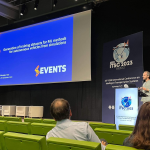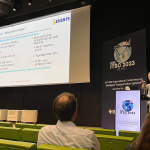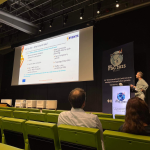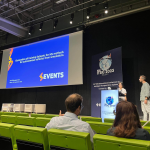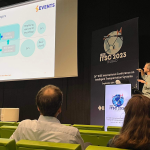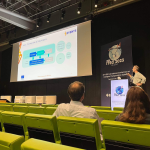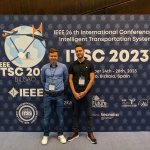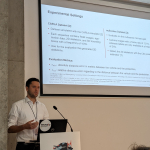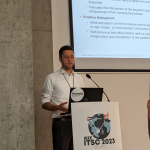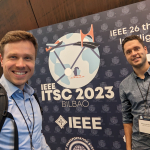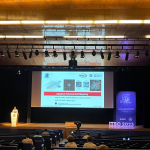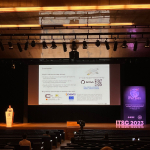The 26th IEEE International Conference on Intelligent Transportation Systems -ITSC 2023 took place on 24th-28th of September 2023, in Bilbao, Bizkaia, Spain.
The IEEE International Conference on Intelligent Transportation Systems (ITSC) is an annual flagship conference of the IEEE Intelligent Transportation Systems Society (ITSS). Researchers, engineers, practitioners, and students, from industry, universities and government agencies were invited to present their latest work and to discuss research and applications for intelligent vehicles and vehicle-infrastructure cooperation.
ITSC welcomed articles in the field of intelligent vehicles dealing with new developments in theory and applications, vehicle technologies and demonstrations. It also welcomed proposals for workshops and tutorial sessions to be offered the day before the symposium.
The detailed conference program is available here.
EVENTS has a three-fold presentation as follows:
- EVENTS participated in an Industrial Session Proposal entitled: Next-gen mobility planning. More info about the session is available here. Dr. Bill Rougas from ICCS, represented EVENTS and delivered a presentation entitled: “Generation of training datasets for ML methods for autonomous vehicles from simulations“. His presentation is available here.
- A paper entitled “Pedestrian Environment Model for Automated Driving“, was submitted by Adrian Holzbock*, Alexander Tsaregorodtsev*, and Vasileios Belagiannis° (* Ulm University, ° Friedrich-Alexander-Universität Erlangen-Nürnberg). The paper was presented by Adrian Holzbock and it is available here. The presentation is also available here. This paper was prepared within EVENTS project.
- A paper entitled “Adaptive Patched Grid Mapping“, was submitted by Thomas Wodtko, Thomas Griebel, and Michael Buchholz (all Ulm University). The paper was presented by Thomas Griebel and it is available here. The presentation is also available here. This paper was jointly prepared within EVENTS and U-Shift II projects (U-Shift II is funded by the State Ministry of Economic Affairs Baden-Württemberg (project U-Shift II, AZ 3-433.62-DLR/60))



